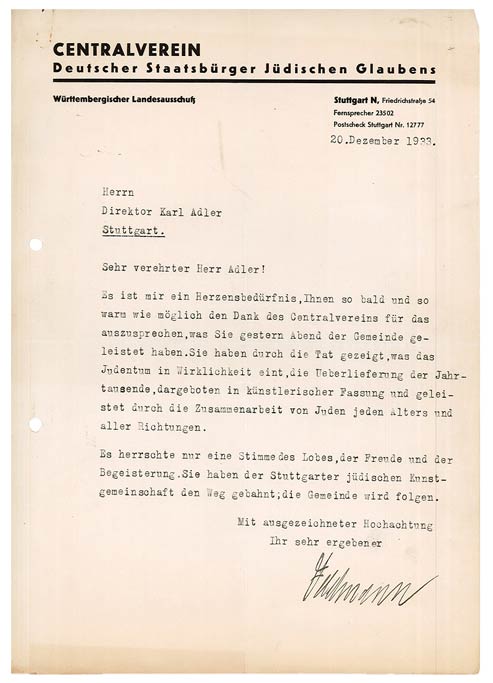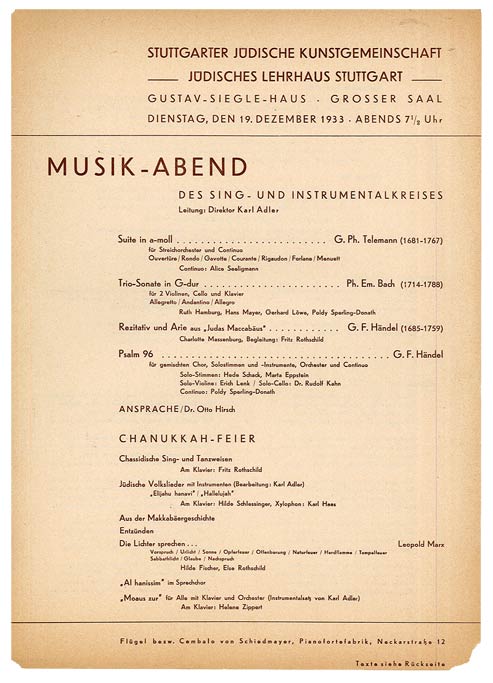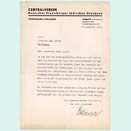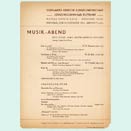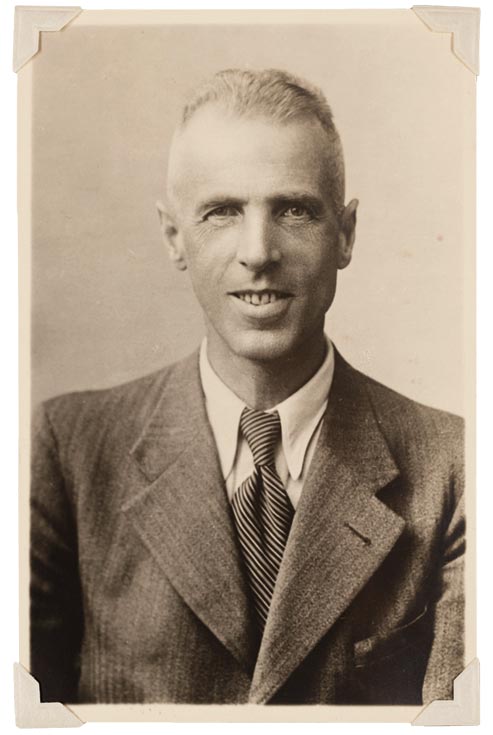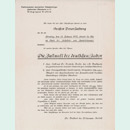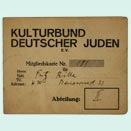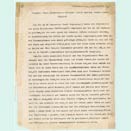Wednesday
20 December 1933
Letter written by Gustav Feldmann to Karl Adler following the Jewish House of Learning‘s Hanukkah celebration in Stuttgart
"Fifteen hundred people from our community, of all classes and outlooks, fifteen hundred Jewish people sat side by side and demonstrated the new Jewish determination to live"—thus wrote the Gemeinde-Zeitung für die israelitischen Gemeinden Württembergs on 1 January 1934.
The "Evening of Music by the Vocal and Instrumental Group" praised by the article had taken place two weeks earlier, on 19 December 1933, at the Gustav Siegle House in the center of Stuttgart. It was directed by the musicologist Karl Adler (1890–1973) and was the first concert performed by the Jewish Art Association in Stuttgart, which Adler had founded.
The event began with four works by Telemann, C.P.E. Bach and Handel. The selection shows that the organizers did not wish to limit themselves strictly to Jewish composers, although their intention was to put on a concert by Jews for Jews. The music was followed by a lecture by Otto Hirsch, who had co-founded the House of Learning together with Adler. Finally, the actual Hanukkah celebration began with the lighting of the candelabrum, a reading from the Book of Maccabees and prayers of thanks. The audience joined in the singing of Jewish folk songs.
The next day Karl Adler received an effusive thank-you note from Gustav Feldmann (1872–1947), chairman of the Württemberg Regional Committee of the Central Association of German Citizens of Jewish Faith (Central-Verein Deutscher Staatsbürger jüdischen Glaubens, or CV). As Feldmann wrote, he felt a "sincere desire" to thank Adler on behalf of his organization for the evening.
The CV, founded in 1893, represented the majority of acculturated German Jews. The events of 1933 dealt a severe blow to their perception of themselves as patriotic Germans, an identity that was now being challenged. It was now all the more important for them to remember their Jewish tradition as the foundation of all that held them together. It is against this background that Feldmann praises Adler in his letter for showing "what truly unites Judaism, traditions that have been passed down for thousands of years, presented in artistic form by Jews of all ages and branches of Judaism working together."
Franziska Bogdanov
